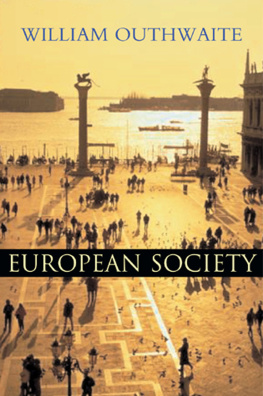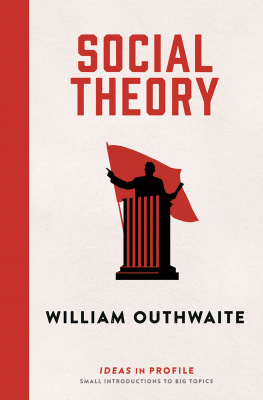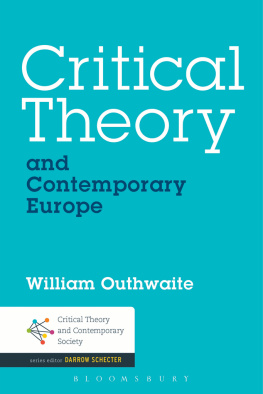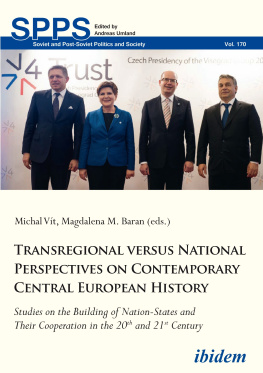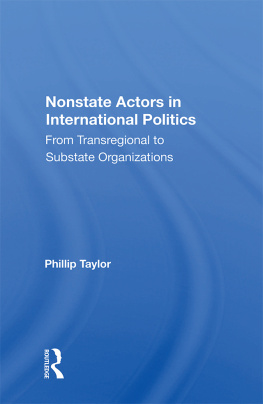Transregional Europe
BY
WILLIAM OUTHWAITE
Emeritus Professor of Sociology, Newcastle University, UK
United Kingdom North America Japan India Malaysia China
Emerald Publishing Limited
Howard House, Wagon Lane, Bingley BD16 1WA, UK
First edition 2020
2020 William Outhwaite
Published under exclusive licence by Emerald Publishing Limited
Reprints and permissions service
Contact:
No part of this book may be reproduced, stored in a retrieval system, transmitted in any form or by any means electronic, mechanical, photocopying, recording or otherwise without either the prior written permission of the publisher or a licence permitting restricted copying issued in the UK by The Copyright Licensing Agency and in the USA by The Copyright Clearance Center. Any opinions expressed in the chapters are those of the authors. Whilst Emerald makes every effort to ensure the quality and accuracy of its content, Emerald makes no representation implied or otherwise, as to the chapters' suitability and application and disclaims any warranties, express or implied, to their use.
British Library Cataloguing in Publication Data
A catalogue record for this book is available from the British Library
ISBN: 978-1-78769-494-1 (Print)
ISBN: 978-1-78769-493-4 (Online)
ISBN: 978-1-78769-495-8 (Epub)
Table of Contents
About the Author
William Outhwaite, Fellow of the Academy of Social Sciences, UK, taught at the universities of Sussex, in the School of European Studies, and Newcastle, where he is Emeritus Professor of Sociology. His interests include the philosophy of the social sciences (especially realism), social theory (especially critical theory), political sociology and the sociology of knowledge.
Professor Outhwaite is now working mainly on contemporary Europe. He is the author of Understanding Social Life: The Method Called Verstehen (1975, 2nd edn. 1986), Concept Formation in Social Science (1983), New Philosophies of Social Science: Realism, Hermeneutics and Critical Theory (1987), Jrgen Habermas: A Critical Introduction (1994), The Future of Society (2006), European Society (2008), Critical Theory and Contemporary Europe (2012), Social Theory (2015), Europe since 1989: Transitions and Transformations (2016), Contemporary Europe (2017) and (with Larry Ray) Social Theory and Postcommunism (2005). He edited The Habermas Reader (1996), Brexit: Sociological Responses (2017), (with Tom Bottomore) The Blackwell Dictionary of Twentieth-Century Social Thought (1993, 2nd edn. 2004), (with Luke Martell) The Sociology of Politics (1998), and (with Stephen P. Turner) the Sage Handbook of Social Science Methodology (2007) and Sage Handbook of Political Sociology (2018) and (with Luca Corchia and Stefan Mller-Doohm) Habermas global: Wirkungsgeschichte eines Werks (2019).
Preface
This book continues a line of argument developed in my European Society (2008), Europe Since 1989 (2016) and Contemporary Europe (2017). It aims to integrate work such as new regionalist approaches in human geography and planning with related scholarship in history and the other social sciences. At the time of writing, the future of the UK and its relationship with the European Union (EU) still remains open, but it is possible to make two remarks here. First, there is no obstacle in principle to non-member states participating in EU programmes of the kind discussed here. Second, however, when the UK does secede, on whatever terms, it will probably cease to appear in many of the statistical sources on which writers on contemporary Europe have increasingly relied. This is a further source of regret amidst a much broader tragedy. The EU will survive (and hopefully thrive) without the UK, though it is hard to see any future for the UK or whatever remains of it after its probable dissolution.
1For an early example of this exclusion, see the Commission proposal for Cohesion Policy in the 20212027 budget period: http://ec.europa.eu/regional_policy/sources/docgener/panorama/pdf/mag65/mag65_en.pdf. The ESPON reports and maps referred to substantially in this book include only the European Economic Area and Switzerland.
Acknowledgements
My thanks to Bob Jessop and Krishan Kumar for providing copies of papers. I have also benefited from conversations with a number of other friends and colleagues, in particular Gerard Delanty, who read the book in manuscript.
Chapter 1
Introduction
This book examines how far we are beginning to think of Europe in terms of broad regional concepts familiar in the US: East/West/South/Midwest etc. The focus will be both on popular perceptions and on European Union (EU) macro-regional planning in the Baltic, Danube, Adriatic and other regions. Europe itself has passed from being a core region of the world, in the imperial age ending in the mid-twentieth century, a divided region in the Cold War period, to a (more-or-less) unified region in the present century (Schimmelfennig, 2016: 180). The degree and extent of unification can of course be disputed; my concern here is rather to look at ways in which the European cake is sliced. My aim is to bridge the gap between essayistic discussions of regional stereotypes in the popular imagination such as the lazy south or the wild east and detailed accounts of the EU's controversial and contested attempts to develop planning strategies at a transnational level to address common environmental and other problems in member states, subnational regions and the states and regions adjacent to the EU. The focus, in other words, is on what have been called mental maps (Gould & White, 1974), located in the minds both of European planners and of ordinary Europeans and visitors from abroad. In a particularly upbeat edited volume published in 1994 and reissued in 2013, Ashworth and Larkham (2013) wrote of the need for a reformulation of the mental map of Europeans to encompass a new place-identity at the continental scale.
The idea of the nation state was strongly reinforced by nationalist interpretations of the past, and it is no coincidence that the timing of the rise in interest in the conservation of relict artefacts of the built environment in the latter half of the nineteenth century in Europe coincided with the creation of the nation states of Germany, the Balkans and ItalyThe shaping of a European place-identity to complement, if not replace, national identities hasnever been more urgent or more necessary.
Another main theoretical reference point is the notion of imagined collectivities, introduced by the psychoanalyst and social theorist Cornelius Castoriadis (1975) in L'institution imaginaire de la socit, in which the representation of a social entity by its members is analysed as a constitutive part of it. The French term






